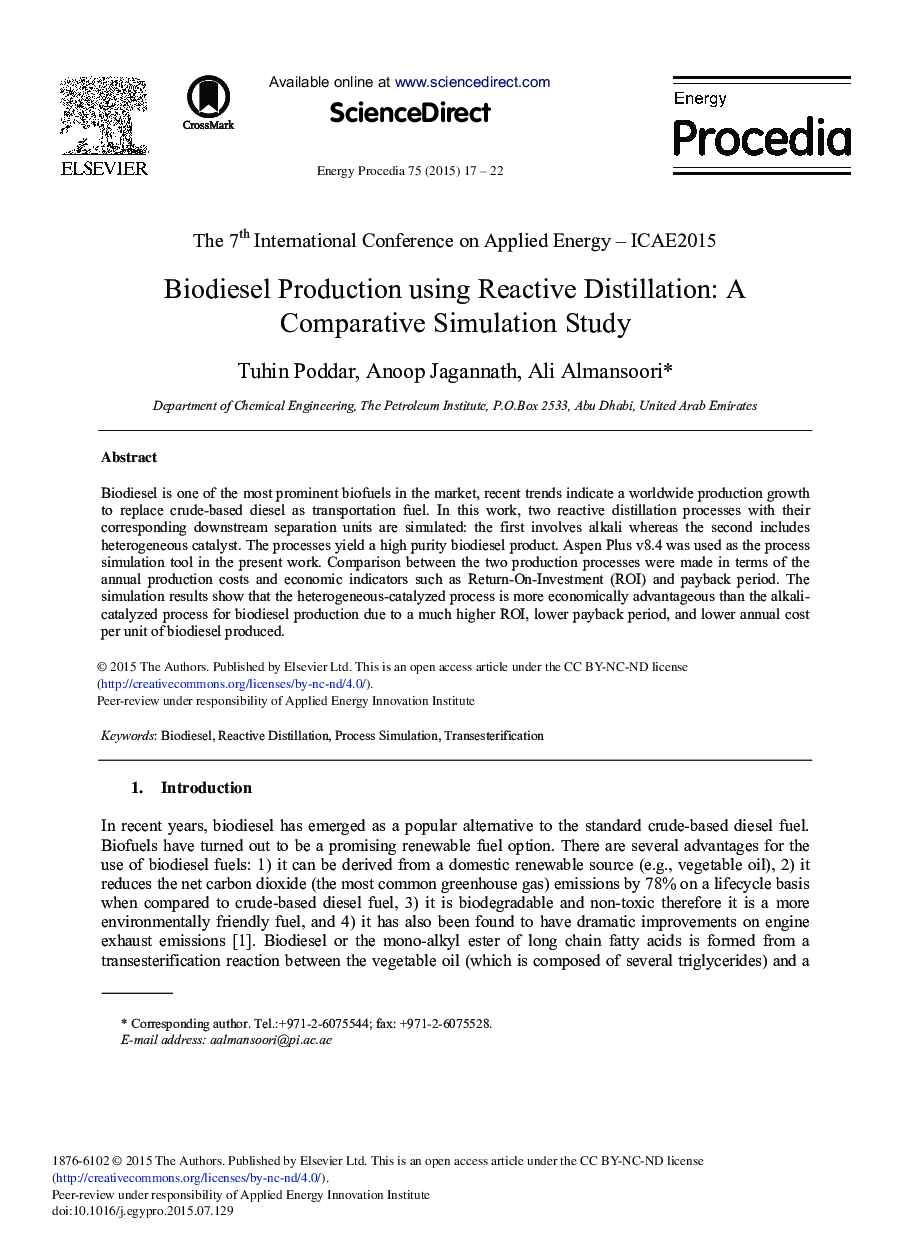| Article ID | Journal | Published Year | Pages | File Type |
|---|---|---|---|---|
| 1509487 | Energy Procedia | 2015 | 6 Pages |
Biodiesel is one of the most prominent biofuels in the market, recent trends indicate a worldwide production growth to replace crude-based diesel as transportation fuel. In this work, two reactive distillation processes with their corresponding downstream separation units are simulated: the first involves alkali whereas the second includes heterogeneous catalyst. The processes yield a high purity biodiesel product. Aspen Plus v8.4 was used as the process simulation tool in the present work. Comparison between the two production processes were made in terms of the annual production costs and economic indicators such as Return-On-Investment (ROI) and payback period. The simulation results show that the heterogeneous-catalyzed process is more economically advantageous than the alkali-catalyzed process for biodiesel production due to a much higher ROI, lower payback period, and lower annual cost per unit of biodiesel produced.
